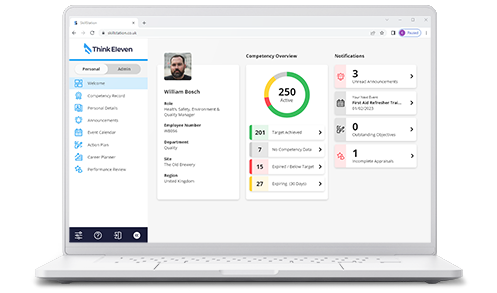Corrective and Preventive Action (CAPA) in Medicinal Products Manufacture (GMP07) eLearning Course
Learning Objective
A company’s Corrective and Preventive Action (CAPA ) system establishes how personnel should deal with manufacturing problems that have occurred or that may occur if not prevented. This module explains the principles of corrective and preventive action and describes typical CAPA procedure. It goes on to introduce root cause analysis and outline the role of progress tracking, escalating, and trending of CAPA procedures.
Who will benefit from this module?
This module provides essential training for all personnel who work in a manufacturing environment in the pharma/biotech industry.
Learning Objectives
- Explain what a CAPA system is and describe how it operates in a company’s Quality Management System
- Describe how a typical CAPA procedure is carried out
- Outline the purpose and practice of root cause analysis
- Discuss the role of progress tracking, escalating, and trending of CAPA procedures
Module Outline
Module overview - An outline of the module’s scope and objectives, and notes on terminology.
CAPA principles - In this session we explain what a CAPA system is and why it is important. We explain the differences among correction, containment, corrective action, and preventive action. We specify sources of information about manufacturing problems, and we emphasise the importance of documentation of a CAPA system.
CAPA procedure - Problems that may give rise to CAPAs are best tackled by systematically progressing through a number of stages of procedure. In this session we set out the typical stages of a CAPA procedure, along with the questions to be addressed and the actions taken at each stage.
Root cause analysis - Root cause analysis is a rigorous approach to finding the deepest causes of problems. In this session we emphasise the value of applying CAPA to root causes rather than their symptoms. We set out the stages of a typical analysis, and we list examples of tools for finding causes and studying trends.
Tracking, escalation, and trending - One of the most common findings of regulatory inspectors is the lack of effective and timely closure of CAPA reports. In this short session we emphasise the importance of tracking the progress of CAPA procedures, escalating issues, and reviewing trends in the CAPA system.
Assessment - Multiple-choice mastery assessment.
This course has a minimum of 25 learner registrations for us to provide a quotation.
Request a Quotation- Language
- UK
- Date last updated
- 5/20/2024
- Duration
- 1 Hour
- Suitable Devices
-
- PC
- Tablet
- Audio is Required
-
- Optional
- Includes Video
-
- No
- Downloadable Resources
-
- Factsheets
- Linked within Course
- Transcripts
- Completion Criteria
-
- Complete all modules
- Multiple Choice Assessment
- Pass Mark
-
- 75% pass mark required
- Course Technology
-
- HTML5
- SCORM 1.2
- Can be customised
-
- Available at an Additional Cost
- Accreditation or Endorsements
-
- CPD
- Languages
-
- English
